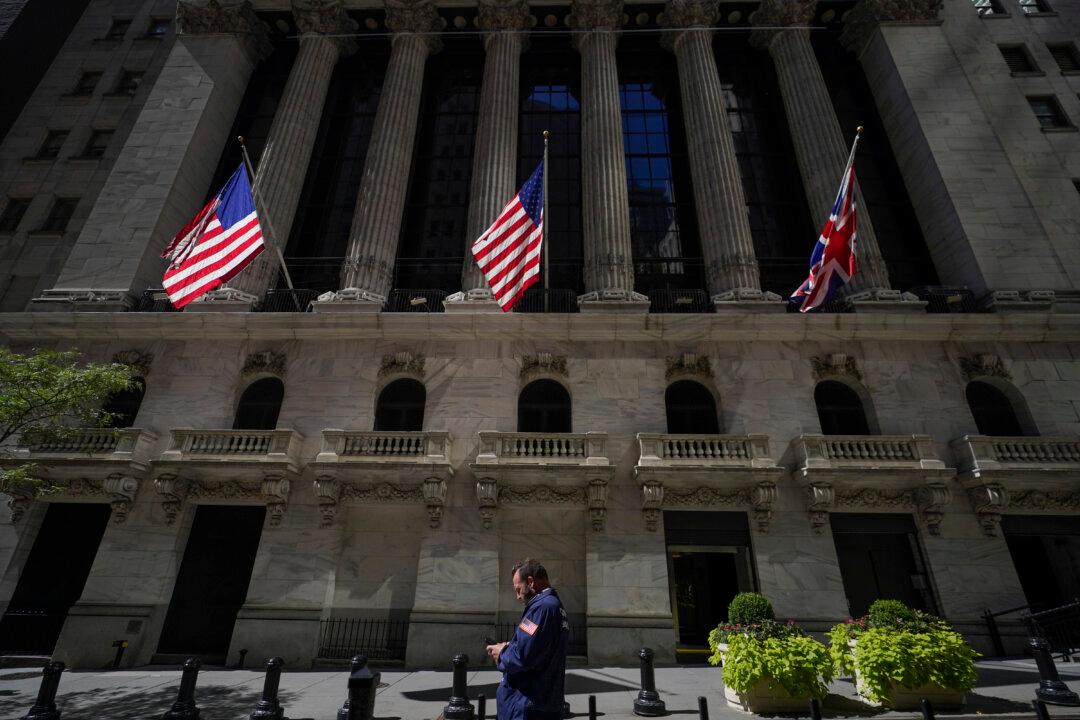NEW YORK—Wall Street remained stuck in its standstill Monday, and stocks again moved only modestly ahead of reports that could offer more direction on where the economy and corporate profits are heading.
The S&P 500 edged up by 3.52 points, or 0.1 percent, to 4,137.04 after barely budging last week. The Dow Jones Industrial Average rose 66.44, or 0.2 percent, to 33,875.40, while the Nasdaq composite slipped 35.25, or 0.3 percent, to 12,037.20.





